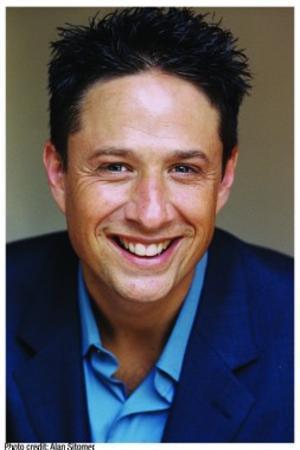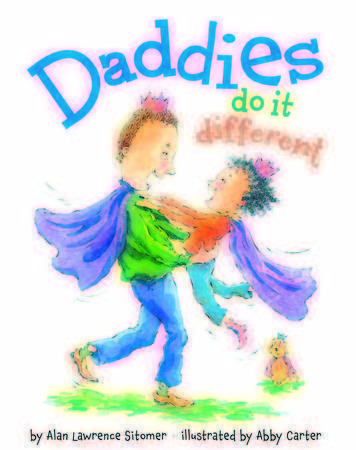 “You gotta think you can before you ever will,” says Alan Sitomer. The author of nine books for young adults and children has always had a passion for writing. In middle school, he would pass the time in his “boring” classes by writing poetry or short stories, and he says in high school, writing was the only thing that kept him sane.
“You gotta think you can before you ever will,” says Alan Sitomer. The author of nine books for young adults and children has always had a passion for writing. In middle school, he would pass the time in his “boring” classes by writing poetry or short stories, and he says in high school, writing was the only thing that kept him sane.
“Writing was my life raft in the sea of a very turbulent adolescence,” Alan told Cracking the Cover. “By college, I was an English major and then after I graduated from college I set out to actually become a professional writer.”
But the path to professional writer wasn’t exactly smooth. Along the way he became a professional waiter, a professional bookstore clerk and a professional “Going Out Of Business, This Weekend ONLY!” rug salesman.
“Yet, I wrote and wrote and wrote,” he said. “Eventually, doggedness won out, and here I am today working on my 16th published project. There’s a great lesson in that, to my way of thinking. Not just for all aspiring writers, of course, but for all people. Tenacity, fortitude and gumption open more doors than talent, brains or skill. I learned to become thick-skinned, resolute and to never give up. Eventually, the publishing universe yielded.”
Years later, Alan, who was named California’s teacher of the year in 2007, spends a lot of time encouraging children to go for their dreams. “There’s a bit of an unrecognized science to achievement and it begins with dedication, work ethic and building skills through the school of hard knocks,” he said. “Media often portrays people who have attained success in a manner that misrepresents the blood, sweat and tears that almost always occur behind the scenes. Once people see a bit of the process, it not only becomes more real to them; it becomes more conceptually achievable.”
As we get older, society pushes young people to let go of the kid that lives inside each of us. But Alan likes the kid that lives inside most people. “I often find it’s the best part of many folks I encounter, too. In my opinion, people ought to do more to hold onto their inner youngster,” he said. “This certainly is part of the reason why I write for young people.”
Writing for young people also allows Alan to cultivate silliness. Immaturity, he says, is important to his craft. “Of course, as a professional, this is a drawback when it comes to doing this like keeping track of receipts for my taxes, but it’s wonderful for helping me make sure that young readers respond to the books that I write,” he said.
 In case you haven’t already guessed, Alan loves to laugh, and many of his ideas come from the funny things that have happened to him. He also uses a sense of humor to deal with life’s challenges. Case in point — Alan’s latest picture book from Hyperion, “Daddies Do It Different.”
In case you haven’t already guessed, Alan loves to laugh, and many of his ideas come from the funny things that have happened to him. He also uses a sense of humor to deal with life’s challenges. Case in point — Alan’s latest picture book from Hyperion, “Daddies Do It Different.”
The book was born out of a disagreement that came as Alan was covering daddy duties. “One day, while trying to defend my rationale for doing something like using a cashmere sweater as a burp cloth (hey, it made sense at the time) I simply turned to my wife and came up with the line, ‘Honey, daddies do it different,” he explained.
“From there it took on a life of its own, a tag line to defend myself against all sorts of maternal onslaughts. Now my brother uses the line, the grandmas pipe in with the line, and my deepest hope is that somewhere, some poor new dad who is on the doorstep of being eviscerated by his wife for using a dish towel as a nap pillow will say ‘Honey, you just gotta realize that daddies do it different.’”
Alan puts a high value on his readers experiencing joy as a core element in all of his work. Children have to deal with enough grumpy, serious, humorless adults. They shouldn’t have to deal with that while reading, too. “Students will read more books when they like what they are reading,” he said. “Students will learn more about a subject when they like what they are learning. Students will try harder to do a good job on the work they are being asked to do if they like the work that they are doing.”
That’s why Alan tests all his books first with his best and toughest audience — kids. “If my books flies with them, then I know I am good and I’ll go ahead and take it to the next level and begin to show it to the people in the publishing industry,” he said. “But if I do not get their seal of approval, I stop, listen to their feedback, and go back into the piece in order to make it work. It’s probably why my fans are so loyal; they know that I respect them and that I listen to them and that I like them. I really think that is an important element to my work.”
*Read the complete transcript of Alan’s interview with Cracking the Cover.
